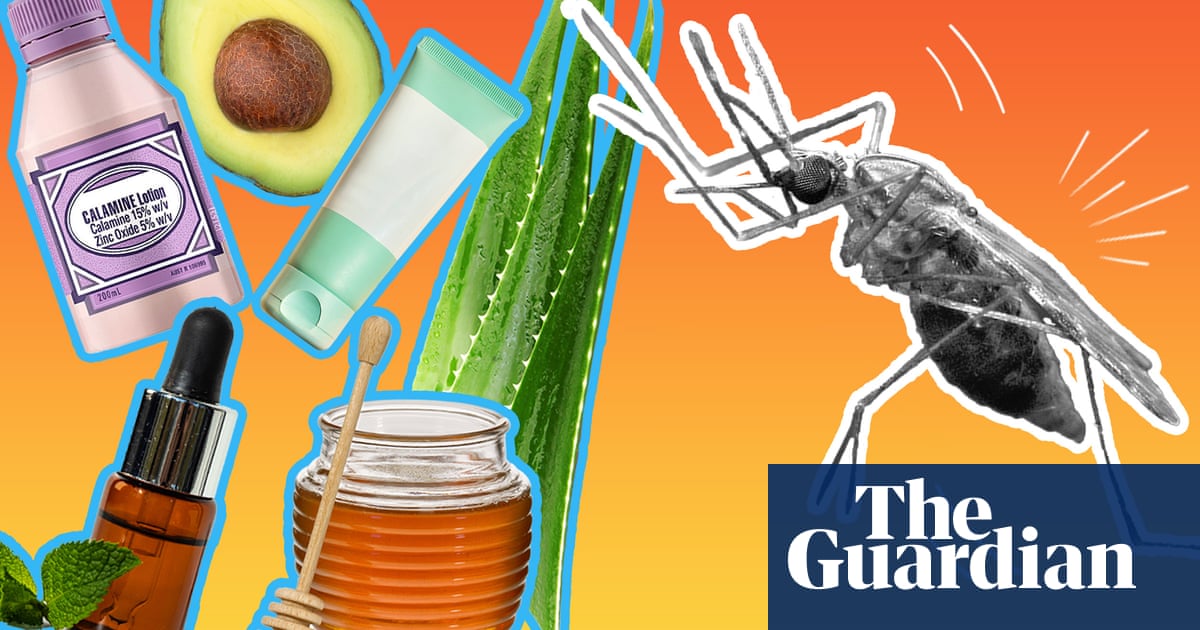If you experience ugly, itchy red welts after being bitten by a mosquito, you’ve probably tried everything to soothe your skin and stop the itch. Home remedies such as avocado and ice, or over-the-counter treatments, can provide temporary relief, but before we get into the desperate, wacky and more helpful measures for reducing itching (pruritus), it helps to understand what’s causing it.
Dr Cameron Webb, an entomologist at the University of Sydney, says the female mosquito injects saliva with a cocktail of proteins into our skin through a long needle-like tube called a proboscis.
These proteins include anaesthetic to keep us blissfully unaware of the bite (until it’s too late) and anticoagulant to thin the blood so the mosquito can suck freely. Worse, our blood helps her make eggs so she can produce more of the suckers.
But it’s our body’s response – not so much the bite itself – that causes the problem. Recognising a foreign invader, our immune system triggers histamines to send in the cavalry. As Dr Catriona Nguyen-Robertson, an immunologist at the University of Melbourne, explains, this causes inflammation after about 20 to 30 minutes which can go on for two or three days.
Reactions are variable, just as people react differently to allergic triggers such as pollen or peanuts. Why some people get more bites in the first place is unclear; it may be due to different skin chemistry and body odour. Mosquitoes are also attracted to heat and carbon dioxide in our breath.
The response may change over time, says Nguyen-Robertson, as people can become desensitised after repeated bites. “So, after long-term exposure, your immune system calms down a bit,” she says. Although if you travel and are bitten by a different species it might go on the alert again.
It’s a very primal response, says Prof Craig Williams from the University of South Australia, and the itchiness could be the body’s response to promote removal of the foreign substance. Although scratching might bring short-term relief, he says it doesn’t solve the problem.
Solutions that soothe
Online solutions include blue light technology, a smartphone-powered heat device, an anti-mosquito bite clicking tool, an anti-itch zapper and a suction tool to remove the saliva. There doesn’t seem to be a smartphone app – yet.
Popular topical treatments such as Stingose and calamine lotion have the active ingredients aluminium sulphate – purported to inactivate insect venom – and soothing zinc oxide, respectively. Other options are corticosteroid cream and Stop Itch, which contains cooling menthol.
Plus, there’s an array of creative home remedies. Webb says he’s heard it all, from mayonnaise and essential oils to bananas and avocado. “Although with this cost-of-living crisis, I don’t know if using avocado to treat mosquito bites is the best way to go.”
Other topical treatments, such as honey, oatmeal paste, baking soda, basil, thyme, vinegar, peppermint oil, aloe vera, onion, garlic, lemon balm and chamomile tea may offer relief due to their antioxidant, antibacterial or anti-inflammatory effects. From the bathroom, Vicks VapoRub, witch hazel and toothpaste might also help soothe the itch.
“If they work for you and aren’t causing skin irritation, there probably isn’t any harm in continuing to use these (probably very messy) options,” says Webb.
Heat therapy and crushed ice may help reduce swelling and inflammation, and in turn, some of the itch. Webb sees variations on this, such as placing a metal spoon – run under hot or cold water – on the bite, which is OK if it’s not hot enough to burn your skin. He recommends a cold pack followed by unscented moisturiser. For people who are really suffering, antihistamines can help.
When things turn nasty
Scratching the bite can introduce bacteria and cause infection, called cellulitis, indicated by redness, warmth and pus, along with swelling of the lymph nodes and fever. If this occurs, it should be seen by a doctor.
Some people might also have a severe allergic reaction – swelling of the face or throat and difficulty breathing – which requires immediate medical intervention.
Williams warns to watch out for other symptoms such as fever with joint pain, rash, intense headache and lethargy, which could suggest Ross River or Barmah Forest virus. More seriously, fever and neurological symptoms could indicate Japanese or Murray Valley encephalitis, which have been detected recently in New South Wales and Victoria.
Bite back
To be safe, the best course of action is to avoid being bitten in the first place.
Desperate mozzie magnets have asked Webb if there is anything they can eat or drink to deter the insects, but there’s no evidence on that count – although some research suggests drinking alcohol can make you more attractive to the little vampires. Webb has a theory: “The more alcohol you’re drinking, the less likely you are to remember to put on mosquito repellent.”










